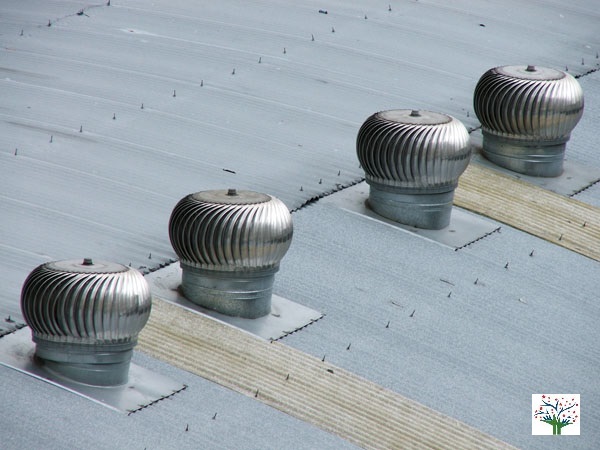How to Improve Indoor air quality?
We can improve indoor air quality by regular cleaning, keeping indoor plants, avoid smoking indoor, removing shoes before entering house, using dehumidifier and air purifiers, keeping windows open for maximum time.
What is indoor air quality?
Indoor air defined as air in homes, offices, clubs etc. and also around them especially it relates to health and comfort of building occupants.
Most people around the world spend about 85% of their time indoors, this is why indoor air quality is considered as most important part of human life.

Exposure to indoor air pollution for longer duration may lead to serious health problems.
Sources of Indoor Air Pollution
Pollutants may arise from inside or outside of buildings and also include bacteria, fungi, chemicals, dust, odour etc. nut it can be confused with temperature, humidity, occupant’s perception and their vulnerabilities.
In offices major sources of indoor air pollution are Dusts, Inadequate ventilation systems, cleaning chemicals usage, ozone, pesticides and smoke. These parameters are present in every offices or homes in more or less quantities. These can cause reduce indoor air quality when present in excessive concentration.
Dust and still water can cause favourable environment for microbial growth. Also indoor smoking cigarette can damage indoor air quality in substantial manner.
Smoking cigarette can release smoke particles, particulate matter, radon, Carbon Monoxide, formaldehyde, etc.
Also lack of fresh air can also increase indoor air pollution as perception of still stale air, odors, draftinees, very low or high humidity or temperature can create discomfort environment.
Read More Sources of Air Pollution
What are Effects of indoor air Pollution?
When Indoor air quality is not upto the mark then some people who are more sensitive that others can show below mentioned symptoms after several hours of exposure to the polluted air:
- Headache
- Dryness of skin, eyes, etc
- Weakness
- Shortness of breath
- Dizziness
- Nausea
- Sinus Congestion
- Allergies
- Hypersensitivity
- Sneezing and Coughing
Read More About Indoor Air Quality Testing Parameters
People can feel better when the move to away from these buildings where they have shown these symptoms.
Improved air quality can show improvement in productivity and fewer lost working days.
Why Indoor Air quality Testing / Monitoring is required?
When employee or occupants are falling sick regularly or particular symptom is shown by many occupants then there is requirement of Indoor air quality monitoring.
But before proceeding to indoor air quality monitoring process some basic data needs to be collected as below mentioned:
- Type of complaints
- Location of such complaints
- Specific time and day of complaints
- First occurrence
- When did health problem arise after leaving building or over the weekend
- Is there any activity related to occurrence of the problem e.g. use of pesticide

It can be measured from different locations within a building, Indoor vs outdoor and Different time of the day so that collected data can show some information about source of the problem and possible solution.
Learn More about How to Improve Indoor Air Quality in Cities
How to Improve Indoor air Quality at home or Office?
Below are the tips or ways on how to improve indoor air quality in homes and offices:
- Regular sweeping in homes and offices with moist cloth
- Open windows and let the fresh air come
- Add house plants to help clean indoor air e.g. fern, spider plant or aloe vera
- Purchase air purifier for home or offices
- Avoid smoking, wood burning, candles in homes or offices
- Remove shoes before entering into house
- Keep homes dry. Use dehumidifier
- Minimize the use of harsh cleaners or cleaners with strong fragrances
- Repairs all leaks properly
- Ensure proper ventilation by opening windows when possible and maintaining HVAC systems.
- Choose low VOC (volatile organic compounds) materials for furniture and office supplies.
- Store chemicals and cleaning supplies in well-ventilated areas.
- Educate employees about indoor air quality and encourage good habits.
Also you would be interested in knowing how to reduce air pollution from Factories.
The most effective strategy to improve indoor air quality is by eliminating or reducing sources of contaminants.
Effective ventilation is most important as it increases fresh and clean outdoor air, removes pollutants and keeps us healthy. We conduct Ventilation Surveys to check airflows and provide suggestions to improve ventilation in Industries and homes.
Professional Air quality testing company for Home and Office
Our company offers Indoor air quality testing services for Homes and offices since 2007 in India including Indoor air quality monitoring services.
Let us know if you have some other ways to improve indoor Air quality in comments.

Thanks for explaining how you can improve your indoor air quality. I didn’t realize that indoor air pollution could cause so many things like headaches, dry skin, and even dizziness and nausea. I would think that it is important to make sure the air you are breathing is in good condition so you can stay healthy. It seems like I will have to make sure I make sure all of my systems are working properly and that good air is circulating through my home.
Great post! It’s very informative. Many things which I didn’t know has been explained to the mark. Thanks for sharing
Can you recommend any air purifier that you think would work for a 50 square feet apartment? I want to buy another one and would like a bit of help.
An air purifier is probably needed in most homes today because the level of dust and other allergens present is daunting. Where I live, the dust level is insane and I need to always have an air purifier running to make sure I have a healthy air level (I like the ones that can track this level both indoors and outside). I prefer the models from IQAir because I know for a fact that their HEPA filters are the real deal (most other companies are far off the mark on this one).